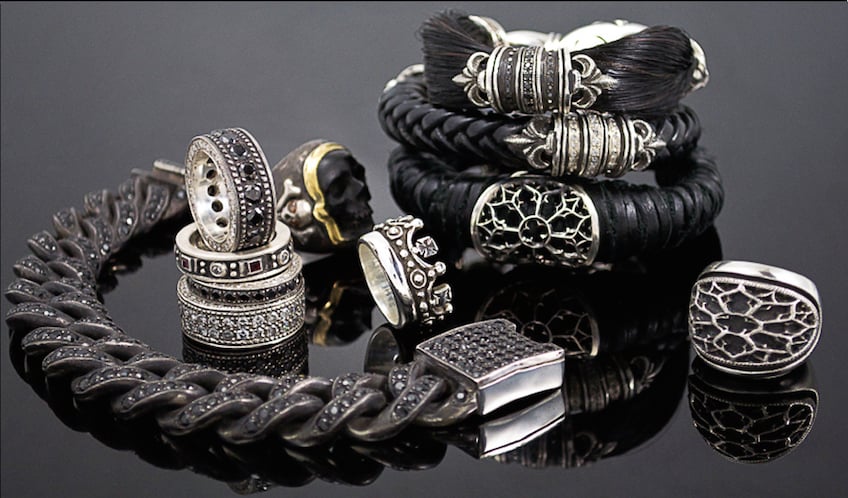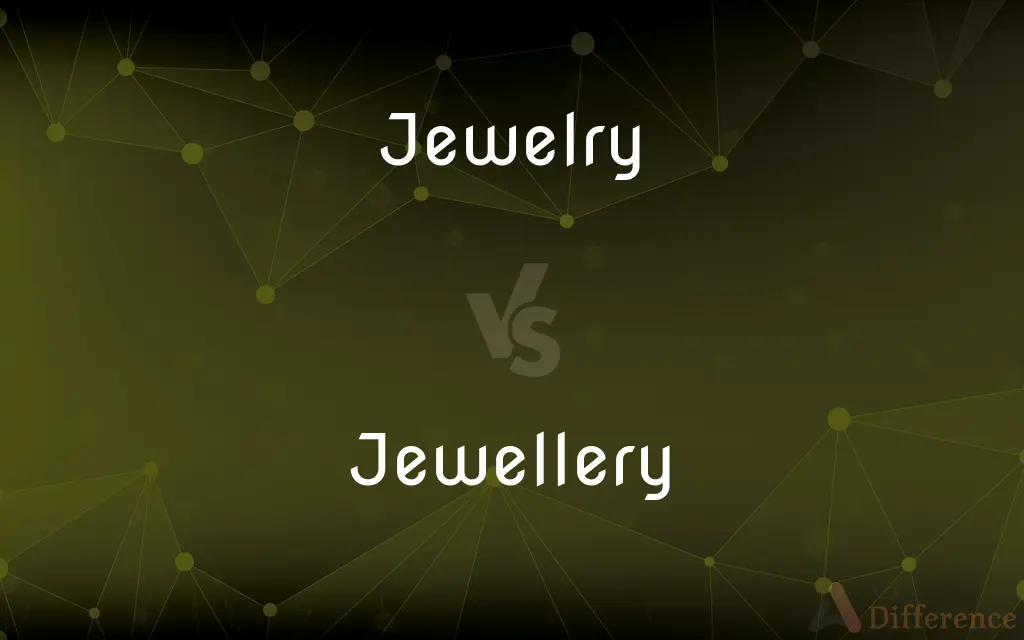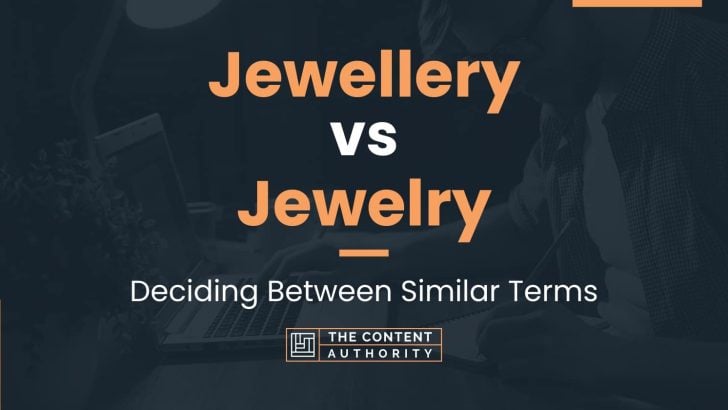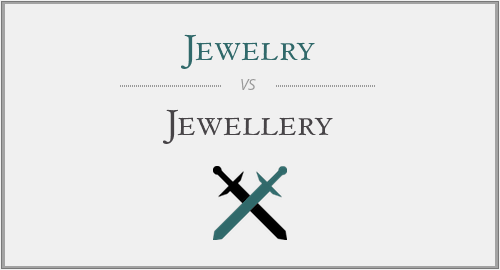jewelry vs jewellery
Related Articles: jewelry vs jewellery
Introduction
With great pleasure, we will explore the intriguing topic related to jewelry vs jewellery. Let’s weave interesting information and offer fresh perspectives to the readers.
Table of Content
The Great Debate: Jewelry vs. Jewellery – A Comprehensive Guide

The English language, with its diverse origins and global reach, often presents fascinating linguistic quirks. One such curiosity is the spelling of the word for adornments worn on the body: "jewelry" or "jewellery." This seemingly minor difference sparks a debate that transcends mere spelling and delves into the nuances of language, culture, and even national identity.
This article aims to provide a comprehensive exploration of the "jewelry" versus "jewellery" debate, examining its historical roots, regional variations, and contemporary usage. By understanding the factors influencing these distinct spellings, we can gain insights into the evolving nature of language and appreciate the subtle ways it reflects our cultural landscape.
Historical Roots: A Tale of Two Spelling Conventions
The origins of the word "jewelry" can be traced back to the Old French word "joiel," meaning "jewel." Over time, this evolved into the Middle English "jewelrie," which was later shortened to "jewellery" in British English.
The "jewelry" spelling emerged in American English during the 18th century, likely influenced by the growing preference for simpler spellings in the American lexicon. This simplification was part of a broader movement to promote a more standardized and accessible language, particularly for the burgeoning American population.
Regional Variations: A Global Perspective
While "jewellery" remains the dominant spelling in the United Kingdom, Australia, Canada, and other Commonwealth nations, "jewelry" is the standard in the United States, the Philippines, and many other English-speaking countries. This regional variation reflects the enduring influence of historical and cultural factors on language evolution.
Contemporary Usage: Navigating the Spelling Landscape
In the modern era, both spellings are widely accepted and understood, even within regions where one is more prevalent. However, it is crucial to be aware of the preferred spelling in specific contexts.
- Formal Writing: In academic writing, professional publications, and official documents, it is generally recommended to use the spelling favored in the target audience’s region. For instance, a research paper submitted to a British journal would likely employ "jewellery," while a publication for an American audience would use "jewelry."
- Business Communication: When communicating with international clients or partners, it is wise to use the spelling that aligns with their location. This demonstrates sensitivity to cultural nuances and fosters a sense of respect.
- Informal Writing: In casual communication, emails, and social media posts, either spelling is generally acceptable, especially when addressing a diverse audience.
Beyond Spelling: The Importance of Clarity and Consistency
Ultimately, the choice between "jewelry" and "jewellery" boils down to clarity and consistency. While both spellings are correct, choosing one and adhering to it throughout a piece of writing ensures a polished and professional presentation.
FAQs: Addressing Common Questions
Q: Is there a "correct" spelling of the word?
A: Both "jewelry" and "jewellery" are considered correct spellings, with their usage determined by regional preferences and context.
Q: Which spelling should I use for my website or blog?
A: Consider your target audience’s location and choose the spelling that aligns with their expectations. If your audience is global, you may opt for the spelling that is most common in your primary market.
Q: Does using one spelling over the other affect search engine optimization (SEO)?
A: While using consistent spelling is crucial for website SEO, the choice between "jewelry" and "jewellery" is unlikely to significantly impact search rankings. Search engines are generally equipped to recognize both spellings.
Tips for Choosing the Right Spelling
- Target Audience: Consider the location and preferences of your intended audience.
- Context: Adapt your spelling to the formality of the writing or communication.
- Consistency: Choose a spelling and stick with it throughout your writing.
- Style Guide: Refer to a reputable style guide for guidance on spelling conventions.
Conclusion: Embracing the Linguistic Diversity
The "jewelry" versus "jewellery" debate highlights the dynamic nature of language and its sensitivity to cultural influences. While regional variations persist, the widespread understanding of both spellings reflects the global reach and adaptability of English. By understanding the historical and contemporary factors shaping these spellings, we gain a deeper appreciation for the intricate tapestry of language and its power to connect and reflect our diverse world.








Closure
Thus, we hope this article has provided valuable insights into jewelry vs jewellery. We hope you find this article informative and beneficial. See you in our next article!
